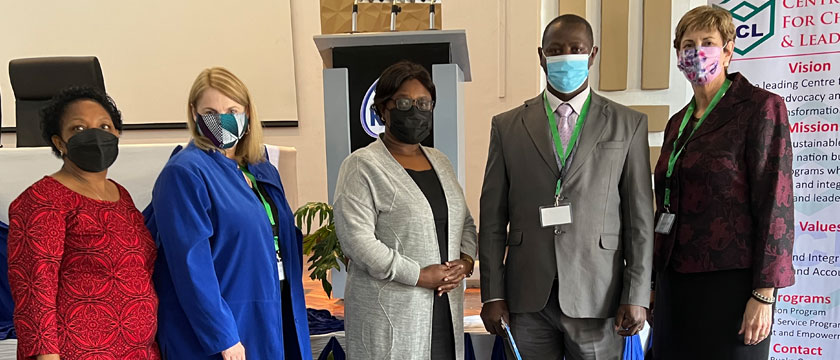Throughout history, and in cultures all over the world, education rightly conceived has had two great goals: to help students become smart and to help them become good. Through formal education, schools are entrusted with the responsibility of shaping children’s social, emotional and ethical lives as well as their cognitive development. In the real sense, school leaders are largely responsible for establishing the climate and culture of a school. They have a significant impact on the well-being and achievement of both teachers and students. Besides, the rising cases of school unrest across the Country is a clarion call for school leaders to implement interventions that address students character and virtue development.
With this background, the Centre for Character and Leadership (CCL) in collaboration with the Kenya Institute of Curriculum Development (KICD) organized a four days Cultivating Virtues in Leaders (CViL) Academy Workshop which was held between December 27-30, 2021. The workshop brought together a team of Principals and teachers from 18 randomly selected Secondary Schools located in 11 Counties across the Country. The purpose of CViL workshop was to help guide the school leaders on a personal and professional development journey of self and other awareness and appreciation, a deep understanding of servant leadership virtues, character education, and skills necessary to lead school transformation.
Speaking during the Workshop, Grace Ngugi, Deputy Director, Department of Special Programmes at the Kenya Institute of Curriculum Development shared the opening remarks on ‘Virtues and Leadership in Curriculum Development’ on behalf of Prof. Charles O. Ong’ondo, Chief Executive Officer, KICD. The participants were engaged through a series of nine individual virtues workshops which included noble purpose, integrity, humility, gratitude, forgiveness, courage, empowerment, foresight, and stewardship. The training was supported with the funds from Templeton World Charity Foundation and facilitated by the CViL developers research consultants from the Center for Character and Citizenship – University of Missouri St. Louis, USA led by Dr. Melinda Bier, Deborah O’Reilly and Dr. Thomas Hoerr.
“Who was the worst boss you’ve ever had or known and who was the best leader you’ve ever known?” Dr. Melinda asked the participants as she shared on servant leadership and noble purpose. She emphasized on the need for educators to individually establish an imaginary board of directors. This may include good role models or moral exemplars who have a direct or indirect positive influence on a person’s life purpose. “The Principal must be the School’s Chief Empathy Officer,” asserted Dr. Thomas as he shared on the ‘Formative Five Success Skills’ which included Empathy, Self-Control, Integrity, Embracing Diversity and Grit. He reiterated that exceptional school Principals use empathy to create an environment in which everyone grows.
The facilitators integrated participatory teaching methods in order to keep the training lively and interactive such as circle time, short videos clips, group discussions and presentation, Live Zoom Webinar, Character strengths surveys and sharing of best practices. The best practices included a session where participants learnt on how to enhance students character formation through adopt a tree and tag a virtue initiative. The teachers appreciated and testified that the training was timely and relevant to their daily teaching work in school.
“I have learnt that kids don’t learn from the people they don’t like. When I go back to school, I will put a smile and encourage students to do their best including low performing students,” said an inspired teacher.
“I have never thought of a creative way of using our school stair. As I leave this place, our staircase will be full of virtues,” said a committed teacher.
“I have been telling girls that I am busy when they come to ask questions and it happens I don’t see them again after turning them away. I will practice to be more listening and creating time for them.” said a transformed CViL Academy participant.
“I will no longer practice – teach and go home. Instead, I will aim in nurturing positive and friendly relationships with the students,” said an elated teacher as she shared about her leadership transformation.

